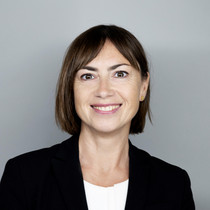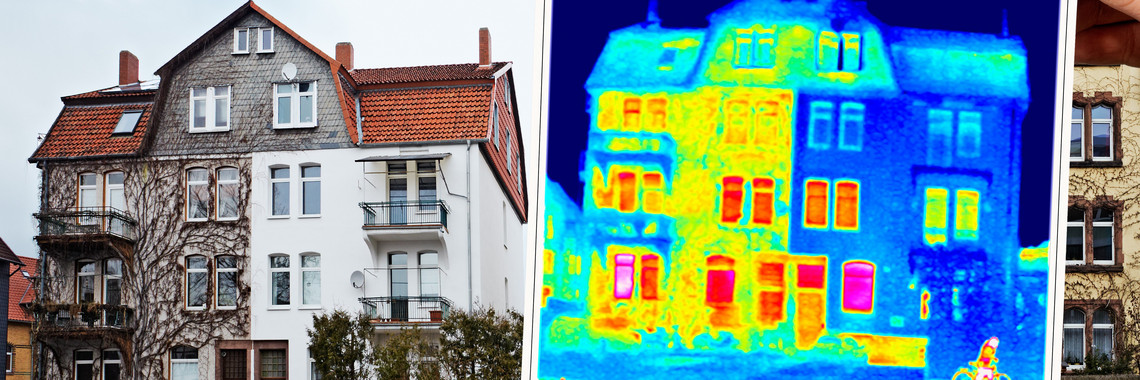Hybrid EU-Wide Policy Conference: Fostering Sustainable Building Renovation in Europe!
On November 19, 2024, the hybrid EU-wide policy conference Fostering Sustainable Building Renovation in Europe! took place at the Impact Hub Berlin, with international participants joining both in person and virtually via Zoom. The conference provided a vital platform for experts and practitioners from local governments, academia, and industry to share insights and discuss how to drive bottom-up decarbonisation of the EU building stock.
The event was opened by Barbara Metz, CEO of Deutsche Umwelthilfe, who emphasised the crucial role of local building renovation projects in achieving Europe’s 2050 climate neutrality goal. Distinguished speakers including Christian Maaß (German Federal Ministry for Economic Affairs and Climate Action), Stefan Moser (European Commission), Sibyl Steuwer (BPIE), and Andrea Carosi (Covenant of Mayors for Climate and Energy) addressed key questions on how to accelerate sustainable building renovation, engage local stakeholders, and create the right incentives for success.
One of the key features of the conference was the presentation of successful sustainable building renovation projects from across Europe. These real-world examples provided attendees with practical solutions and collaborative strategies adaptable to different local contexts. The showcased projects included:
- LA VALL 9, BELLPUIG (Spain) – presented by Riccardo Pinotti, Senior Researcher, EURAC Research
- BAPAURA & BAOBAP Projects (France) – presented by Marie Jeanmougin, Project Manager, ADEME
- Corvinus University Renovation (Hungary) – presented by Ágoston Flaisz, Owner & Managing Director, Planet Group
Participants in Berlin were also invited to engage in dynamic group discussions during the World Café session, an interactive format designed to foster collaboration and idea exchange. Facilitated discussions focused on four key themes:
- Avoiding Demolitions & Fostering Renovations in Europe
- Harnessing Public Procurement for the Green Transition
- Life Cycle Assessment of Buildings
- Socially Acceptable Renovations
These group discussions provided a valuable opportunity for participants to exchange knowledge and insights, offering new perspectives and practical solutions that could be applied in different local contexts. By addressing these complex topics, the World Café session contributed to deepening understanding of the multifaceted challenges surrounding sustainable building renovation and the role of policy and practice in overcoming them.
The official part of the conference was concluded with an inspiring keynote by Elisabeth Broermann of Architects for Future (A4F), who urged participants to take responsibility and take immediate action toward sustainable building renovation. Drawing from A4F's 10 key demands for implementing sustainable renovations, she emphasized the urgent need for a paradigm shift in how we approach building design and renovation. These demands include, for example, rethinking building needs, critically questioning demolition practices, designing for future-proof quality, promoting circularity and climate positivity, enhancing climate resilience, etc.
Key Takeaways
- Renovation Rate Must Increase: To meet the 2050 climate neutrality target, we must double or even triple the current rate of sustainable building renovations.
- Solutions Already Exist: The technologies and solutions required to renovate buildings sustainably and achieve climate neutrality by 2050 are available. The challenge now is to implement them at scale.
- Holistic Approach Needed: A comprehensive, multi-level governance approach is essential for success in building renovation.
- Knowledge Sharing Is Key: The exchange of best practices and knowledge sharing is vital to accelerating sustainable building renovation at the local level.
Impact Hub Berlin: A Best Practice Example
As the venue for the event, the Impact Hub Berlin itself served as a best practice example of sustainable building renovation, incorporating circular economy principles, following the conference, participants had the opportunity to take a guided tour of the building and see firsthand how circularity can be implemented in practice.
Conclusion: A Successful Knowledge Exchange
The conference was a resounding success, providing a valuable platform for international experts and practitioners from municipalities, academia, and industry to exchange knowledge, share best practices, and forge transnational networks. All this is crucial for the successful and accelerated implementation of sustainable building renovation projects across European municipalities.
EUKI SURF EU-wide policy conference
Date: 19 November 2024
Time: 12:00-18:00 CET
Place: Impact Hub Berlin,
Rollbergstraße 28A,
12053 Berlin,
CRCLR House

Jurga Tallat-Kelpšaitė
Advisor Energy & Climate Protection
E-Mail: Mail schreiben
Implementing partners

Pictures from the conference




























